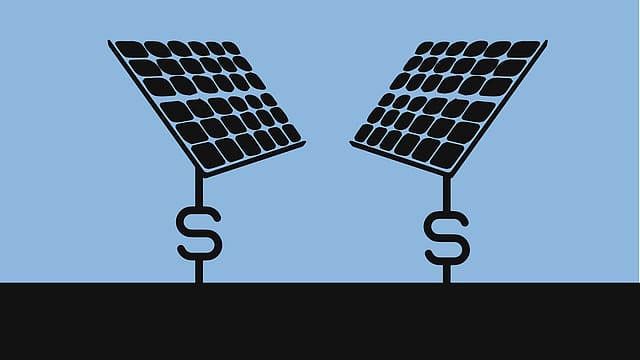Solar sector heats up with big-ticket Edelweiss deal
ADVERTISEMENT

Despite the Covid-19 pandemic, things were bright and sunny for India’s solar energy sector in 2020. Last year saw 231 large-scale solar project acquisitions, compared to 192 transactions in 2019, according to a recent report.
In its quarterly solar funding and M&A report for the quarter ended December 2020, Mercom Capital Group—a leading market intelligence provider in the clean energy space—also said: “Global venture capital and private equity funding in the solar sector in 2020 came to $1.2 billion in 41 deals, compared to $1.4 billion in 53 deals in 2019.”
And, towards the end of the first quarter of calendar year 2021, the solar sector has got a lot hotter with a deal which is pegged at around $500 million. Edelweiss Infrastructure Yield Plus (EIYP), a Category I alternative investment fund (AIF) managed by Edelweiss Group’s Edelweiss Alternative Asset Advisors (EAAA), has struck a deal with Engie Group, a leading French utility provider, for acquiring a controlling stake in its solar energy assets in India.
While the deal value has been kept under wraps, sources claim that the acquisition cost for 74% stake in the portfolio, with 813 MW of operating capacity, is a whopping $500 million. According to an Edelweiss Group release announcing the deal on March 25, the strategic partnership is aimed at creating a high-quality solar platform of substantial scale with a plan to add 2 gigawatt (GW) of solar assets in India over the next couple of years.
January 2026
Netflix, which has been in India for a decade, has successfully struck a balance between high-class premium content and pricing that attracts a range of customers. Find out how the U.S. streaming giant evolved in India, plus an exclusive interview with CEO Ted Sarandos. Also read about the Best Investments for 2026, and how rising growth and easing inflation will come in handy for finance minister Nirmala Sitharaman as she prepares Budget 2026.
“The partnership provides EIYP access to a 2 GW pipeline of quality assets that will be developed and constructed by Engie in accordance with agreed terms,” the release said.
With assets under management (AUM) of nearly ₹30,500 crore, EAAA focusses on providing long-term growth capital to companies and projects, and EIYP is the largest yield-focussed infrastructure AIF in India and the only platform owning and operating assets in all three large infrastructure sectors—transmission, solar energy, and highways.
The latest investment, which is believed to be the largest in the sector in the last 12 months, is in line with EIYP’s strategy to generate regular yields and create value for its investors by taking controlling stake in quality operating infrastructure assets with strong cash flows, the release added.
Subahoo Chordia, EAAA’s head of infra fund business, said that the Engie partnership accelerates the company's strategy to become a leading infrastructure asset owner and investor. He added that EAAA was excited to join hands with Engie, whose governance standards and values are closely aligned to those of EAAA. “This is in line with our philosophy to help infrastructure development in India in collaboration with high quality partners,” the release quoted Chordia as saying. “Leveraging our combined strength and capabilities, we look forward to contributing to India’s ambitious solar energy plans.”
According to the release, Hemant Daga, CEO, Edelweiss Asset Management, said that acquiring operating infrastructure assets helps developers to unlock capital and de-leverage, enabling them to take on newer and larger opportunities. “As India transitions to clean energy, this model will be the core to the country’s ambitious renewable capacity expansion programme,” Daga said.
In value terms, the current deal, which is pegged to be over 40% of the total value of investments through 2020, seems to indicate that the solar sector is getting a lot more attractive. As such, February 2021 witnessed the country’s total solar installations breaching the 40 GW mark. According to Mercom Capital Group, the capacity comprised 34.9 GW of utility-scale solar installations, and 5.1 GW of rooftop solar installations.
The central government’s target of 100 GW solar capacity by 2022 under the National Solar Mission, which was revised upwards from 20 GW earlier, is possibly one of the reasons that the sector is attracting investments. And, the aim of reducing dependence on fossil fuels will also be a key driver for the alternative energy sector, where burgeoning crude oil prices anyways add to the attractiveness.
For now the future of India's solar energy sector seems bright and sunny.
